NCAN Training & Dissemination enables widespread use of new neurotechnologies for important purposes and educates scientists, engineers, and clinicians to develop and use them. While many exciting neurotechnologies have been developed and validated in the lab, few have been translated to clinical practice, largely due to the lack of an appropriate environment, or ecosystem. An effective neurotechnology ecosystem requires: people who understand the principles of the technology and are skilled in its use; widespread access to robust, compatible, and supported hardware and software; and mechanisms that support effective interactions among the scientists, engineers, and clinicians involved. Over the past 25 years, we have created such an ecosystem for BCI2000, a general-purpose software platform that facilitates neurotechnology research and development. Current NCAN Training & Dissemination activities are building on this experience to create a much more comprehensive ecosystem for a wide range of adaptive neurotechnologies.
To train scientists, engineers, and clinicians in the theory and practice of adaptive neurotechnologies, we are: updating our comprehensive curriculum with the new understanding of how CNS plasticity is shaped throughout life, the major therapeutic implications that ensue from this understanding, and the practical issues clarified through our TRDs and their Collaborative Projects; providing courses and workshops based on this updated curriculum ((e.g., Adaptive Neurotechnologies Courses, BCI2000 and Targeted Neuroplasticity workshops); expanding our intramural programs to provide individualized training at undergraduate, graduate, and postdoctoral levels; and obtaining continual feedback on these training activities and how to improve them.
To disseminate knowledge of and access to adaptive neurotechnologies, we are: developing special interest groups (SIGs) for a variety of topics to grow communities of people with common interests in NCAN neurotechnologies such as paired associative stimulation and H-reflex operant conditioning; developing topic-specific Mini-Courses that allow other institutions to create or supplement their own curricula with material on adaptive neurotechnologies; expanding our dissemination channels, including tNCAN and BCI2000 websites, NCAN exhibits at relevant meetings, and NCAN’s online BCI article database; and evaluating the efficacy of our dissemination activities through periodic quantitative assessments (e.g., website use, post-event questionaires) and modifying them in response to this feedback.
In summary, NCAN is continuing and enhancing training and dissemination activities that create and maintain an ecosystem of people, knowledge, and technology that encourages and supports widespread use of adaptive technologies by scientists, engineers, and clinicians to address important scientific and clinical problems.

